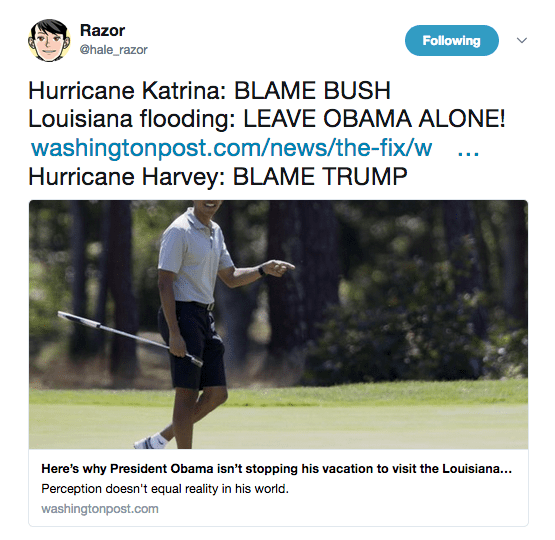UNEXPECTEDLY! The grotesque politicization of Hurricane Ian.
Hurricane Ian ravaged Florida this week and caused enormous suffering. Hundreds have possibly died, a tragic toll that will most likely continue to grow. Millions are without power. The scope and scale of property destruction are impossible to put into words. And while many are stepping up to provide aid and support charitable efforts , much of the country is descending into political squabbles and partisan combat over it all.
The grotesque politicization of Hurricane Ian has come in two primary forms.
The first is a concentrated effort to exploit the natural disaster to push a Green-New-Deal-esque climate change agenda. The most prominent example of this blatant politicization is a now-viral interview in which CNN host Don Lemon repeatedly attempts to get an expert to blame Hurricane Ian on climate change.
When the expert calmly explains that no single disaster can be directly blamed on climate change, Lemon doesn’t accept this answer and asks again. (Now, another guest will apparently be going on to provide a more politically satisfying version of the “science.”)
Time to dust off the Katrina playbook, which the DNC-MSM can easily update to the catastrophe du jour:
● Chuck Todd: Coronavirus Can Be to Trump Like Iran Hostages Were to Carter.
Which dovetails nicely with this quote from Mickey Kaus in 2005: “In short, Katrina gives them a way to talk about Iraq without talking about Iraq. No wonder Gwen Ifill smiles the ‘inner smile.’”
Just think of the media as Democratic Party operatives with bylines, and it all makes sense.

